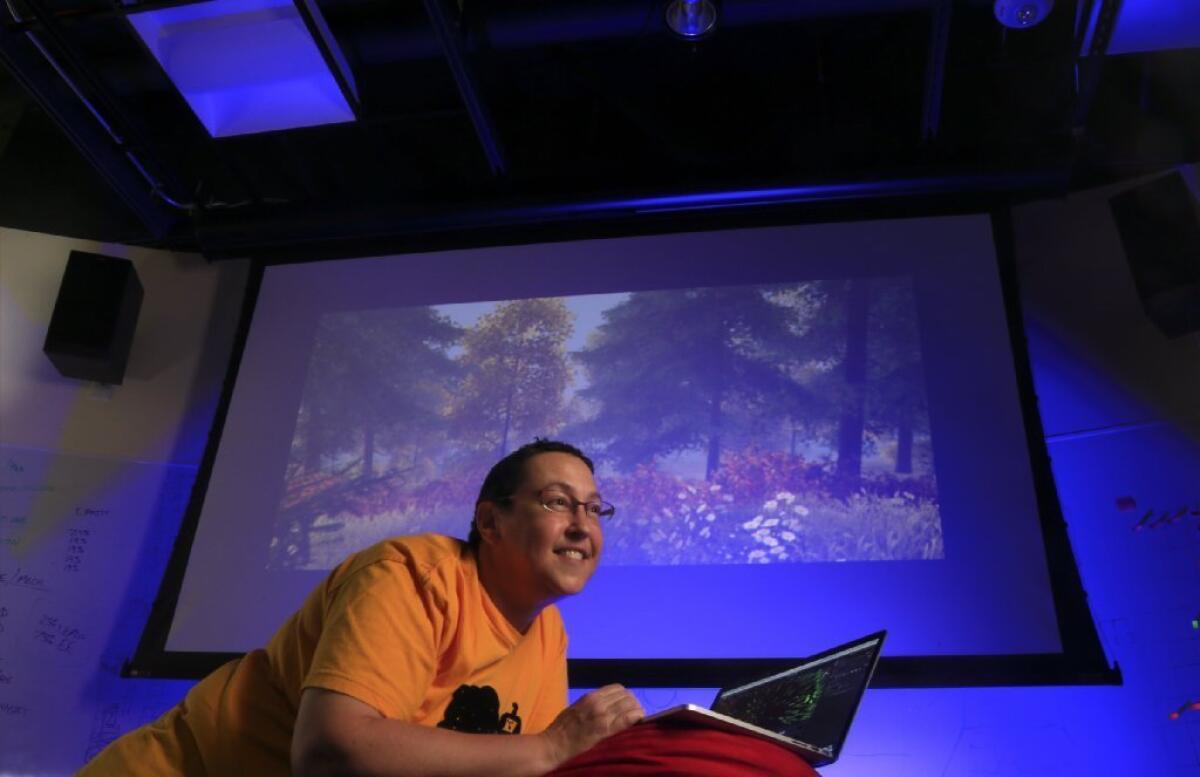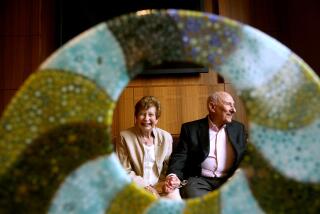Move over ‘Warcraft,’ NEH is funding new online games

This post has been updated. Please see below for details.
Move over “World of Warcraft,” here comes “Pox in the City” -- courtesy of the National Endowment for the Humanities in a new departure that puts some of our federal tax dollars to work funding online games.
That’s $200,000, to be exact, for two games whose object isn’t to build the biggest body count but to immerse the player in an episode from American history.
The NEH announced $17.9 million in grants this week to support scholarship and education in the arts and letters, including the two grants of $100,000 each for online gaming projects, which are part of a new funding initiative for online cultural resources called Digital Projects for the Public.
The player’s goal in “Pox in the City” is to prevent a body count from mounting. Developed by Lisa Rosner, a history professor at Richard Stockton College of New Jersey, it aims to capture the terror of a smallpox epidemic that broke out in Philadelphia in the early 1800s. The gamer takes on the persona of a doctor who’s trying to stem the outbreak.
For folks who’d rather not have any corpses darkening their online edutainment, the NEH is helping to fund a game called “Walden,” which will put the player inside the head of one of America’s seminal literary men, Henry David Thoreau, as he explores the pleasures and challenges of solitude and contemplation during an extended stay beside Walden Pond in Concord, Mass., circa 1845. This one is being developed at USC under the leadership of Tracy Fullerton, director of the university’s Game Innovation Lab.
Four other Digital Projects grants, totaling $118,000, will go toward more traditional online cultural content -- including a website being developed by the New School in New York City devoted to the social history of the AIDS Memorial Quilt that was first displayed in 1987 to pay poignant, individual tribute to victims of the disease, and a compilation of non-commercial radio broadcasts about the civil rights and black power movements, amassed by researchers at the University of North Carolina at Chapel Hill.
The newly-announced grants are the first of three funding rounds for the NEH for fiscal 2014-15. It aims to disburse $119 million for the year as outright or matching grants. The grants account for 81.5% of its $146-million budget, with the rest going for staff salaries and other administrative costs.
The new grants range from $1,000 payouts to help museums and libraries mount touring cultural exhibitions organized by the NEH, to $1.48 million to the Chicago-based American Library Assn., which will continue a program called “Bridging Cultures” that provides programs, books and digital materials to libraries around the country to bolster their offerings about diverse groups that make up the American scene.
An earlier project involved Muslims in America; the new grant is for library programs on the history and culture of American Latinos.
In all, the NEH made 233 grants that average $76,824 each -- compared with the more egalitarian approach taken in a recent grant round by the National Endowment for the Arts, which spread $29.1 million among 1,116 recipients, an average grant of $26,075, with a ceiling of $100,000.
That’s partly because the NEH’s grantmaking for this round included many of its biggest-ticket items, such as funding endowments for scholarly chairs at universities and executive positions at museums.
The endowment-building grants, eight of which were for $500,000 each, are all conditional on the institutions raising a matching amount from other sources. One of them went to the Detroit Institute of Arts to endow the job of vice president in charge of its education programs. A $1-million endowment from federal and matching private sources would be expected initially to generate about $50,000 a year toward a staffer’s salary.
California-based recipients accounted for 29 grants totaling $1.7 million -- including a $260,000 matching sum to endow two humanities staff positions at the Imperial Valley Desert Museum in Ocotillo -- the biggest grant in the state for use by a single recipient.
Two grants are for scholarly looks at the history of Hollywood. USC professor Steven Ross, a historian specializing in the film industry, will receive $50,400 to further work on his next book, “Hitler in Los Angeles: How Jews and Their Spies Foiled Nazi Plots Against Hollywood and America.”
At UC Santa Barbara, media historian Ross Melnick will receive $50,400 for a study called “Hollywood’s Global Exhibition Empires, 1925-1913.”
John Pollini, a USC professor of classical art and archaelogy, will get a like amount for his work on “Destruction, Mutilation, and Repurposing of Images in Late Antiquity,” including how newly dominant Christians in the Roman Empire appropriated or destroyed artworks from the pagan past.
Another scholarly grant of $50,400 goes to Susan McWilliams Barndt, a professor of politics at Pomona College, to help her complete a book called “The Founding Fathers as Architects and Designers.”
The Museum of Contemporary Art, San Diego, will get $6,000 to help it prepare for the worst -- the money is for training and equipping museum staffers to save its art collections in the event of a disaster.
For the record, Dec. 11, 3:14 p.m.: The photo caption in an earlier version of this post gave an incorrect amount for the grant that USC professor Tracy Fullerton has received to develop an online game. It’s for $100,000, not $50,400.
Follow @boehmm of the L.A. Times for arts news and features
More to Read
The biggest entertainment stories
Get our big stories about Hollywood, film, television, music, arts, culture and more right in your inbox as soon as they publish.
You may occasionally receive promotional content from the Los Angeles Times.











